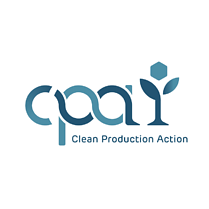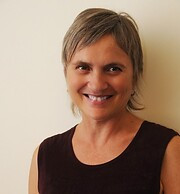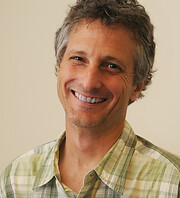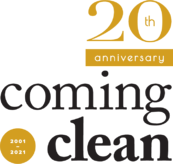June Spotlight: Clean Production Action
|
|
Clean Production ActionMembers: Bev Thorpe, Mark Rossi, Shari Franjevic, Cheri Peele, Kayla Williams
|
 |
About Clean Production ActionClean Production Action (CPA) designs and delivers strategic solutions for green chemicals, sustainable materials and environmentally preferable products. CPA’s unique role is to translate the systems-based vision of clean production into the tools and strategies NGOs, governments and businesses need to advance green chemicals, sustainable materials and environmentally preferable products. Critical to CPA’s success is working closely with existing networks across the globe, developing new partnerships, learning about emerging technological trends and associated environmental health problems, and developing and communicating essential solutions. It is this combination of collaboration, empowerment and advocacy for a clearly defined vision that is key to achieving the fundamental transformations necessary in our economy. |
Our work with the Coming Clean NetworkCPA has been a member of the Coming Clean network throughout its 20 year history, playing an important role both in the Trade Secrets documentary tour and the drafting of the original Louisville Charter for Safer Chemicals. More recently CPA has been involved on the leadership team for the Campaign for Healthier Solutions and has helped update and expand the Louisville Charter. CPA offers technical expertise around chemical toxicity and invites members working through challenges around the complexity of toxic issues to reach out for support! |


|
"If we're going to transform this chemical industry, we need to work together -- across communities and across organizations small and large. It’s a $5 trillion industry, and yet we continue to shape the products that it's able to make. That's the power and passion that we all bring to this work: it’s the relationships among Coming Clean members, cultivated over the years of working together and finding the value in the complementarity of our work."— Mark Rossi |
What vision of the world are you working towards?
Mark: Clean Production Action's mission is to design and deliver strategic solutions for green chemicals, sustainable materials, and environmentally preferable products. Our focus is on solutions to toxic chemicals.
We know these toxic chemicals affect the most vulnerable populations, the fenceline communities, the greatest. So our vision is that we shouldn't have to think about these chemicals, because [in our vision] chemicals are safe and healthy.
Bev: Clean Production Action's mission is also to try to simplify the complexity of chemicals. So often when you talk to companies who are just getting into this game for the first time, they roll their eyes and say, "It's so complex! Chemicals are everywhere. Where do you start? I mean, the world is full of chemicals. How can you say one is worse than another?" And then you hear the chemical industry saying, "There's no such thing as a bad chemical. It all depends on how you use it."
Clean Production Action is really about keeping the eye on the ball of green chemistry and eliminating inherently hazardous chemicals. We have tools like the Green Screen for Safer Chemicals, the Chemical Footprint Project, which are ways for companies to assess and reduce their use of hazardous chemicals; and we also have the Investor Environmental Health Network, which is a great way of linking with investors who really want to put the focus on chemicals.
What accomplishment are you most proud of?
Bev: The early Louisville Charter work, where we co-authored the Safer Substitutes and Solutions plank. And we continue to work on that roadmap to safer solutions.
The other thing I would say is our work with the Campaign for Healthier Solutions. We are seen as a technical support, so when we go and talk to executives in dollar stores -- which often are at the table because of the campaign -- we can then provide them with resources such as how to figure out safer chemicals and work with their suppliers.
Mark: I would add that the work with the Campaign for Healthier Solutions has also been bringing the investors to the table through the Investor Environmental Health Network. Having the investors echoing what the campaign is asking for, and having investors like Sister Nora Nash from the Sisters of Philadelphia not only bringing the investment voice, but the moral authority has helped point out the morality of the decisions that these companies make and the impacts that they have on people on the communities.
Do you have a favorite Coming Clean moment or memory?
Bev: I love Coming Clean meetings when we all can get together. Hopefully post pandemic we can resume all that. The sense of collaboration and energy is just fantastic.
On a more somber note, I remember the trip we did up the Houston ship canal to look at the petrochemical refineries. It's just unbelievable how houses can be literally next to a massive polluting petrochemical complex. I just shook my head the whole time and it seemed to go on for miles and miles and miles. I have huge respect for communities that are living there and working for environmental justice in that region.
Mark: One of the memories I have is the rubber ducky outside Exxonmobil headquarters in Houston and the reactions of the workers who were like, “what is this doing outside our building?” Raising the issue right in front of Exxon I thought it was a great moment for Coming Clean.
What do you feel are the biggest opportunities for your organization to enact the change you’re hoping to see?
Bev: Looking forward, there's definitely a merging of the climate change movement and the toxic chemical movement. People are seeing the complete links with the fossil fuel industry -- it's called the petrochemical complex for a reason. And now we're getting some really good analysis of where fossil fuels are being dumped into, i.e. massive doubling or tripling of plastics production. As the demand for fossil fuels as transport goes down, we're going to see more and more expansion of the chemical sector. So I see this real and exciting opportunity for the climate movement and the non-toxic chemical movement to work together in new ways.
What are you most looking forward to accomplishing with Coming Clean in the next 20 years?
Bev: My long term vision -- which is probably going to be longer than me -- is this massive transition from the petrochemical complex to a green chemistry revolution. And my short term vision is to simply get the dollar stores to clean up their act, start talking to their supply chains, start getting rid of hazardous chemicals in their products, and start to use local food.
Mark: I see this great synergy between the knowledge and lived experience of Coming Clean members and the tools that we've created. And how do you start to fold diversity, equity, inclusion, and environmental justice into tools, right? How do you take those values and make them part of the tools and part of what we're driving corporations to do? That's a whole new ground for Clean Production Action, and we look forward to working with Coming Clean on how to do that.
"A significant opportunity I see is in putting the focus back on production sites. A lot of the work that's happened on safer substitutes and solutions has been getting rid of hazardous chemicals in products and manufacturing, but the beauty of Coming Clean -- which has stayed constant for the last 20-plus years -- is keeping that focus on where chemicals are made and the communities that are impacted."— Bev Thorpe |



